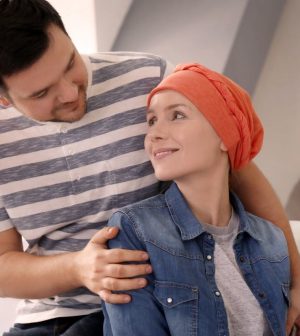- Could Your Grocery Store Meat Be Causing Recurring UTIs?
- Are You Making This Expensive Thermostat Error This Winter?
- Recognizing the Signs of Hypothyroidism
- 10 Strategies to Overcome Insomnia
- Could Artificial Sweeteners Be Aging the Brain Faster?
- Techniques for Soothing Your Nervous System
- Does the Water in Your House Smell Funny? Here’s Why
- Can a Daily Dose of Apple Cider Vinegar Actually Aid Weight Loss?
- 6 Health Beverages That Can Actually Spike Your Blood Sugar
- Treatment Options for Social Anxiety Disorder
Drug Approved to Fight Rare Cancer That Hits Young Adults

A new immunotherapy is now available to treat a rare soft tissue cancer that most frequently occurs in young men.
The U.S. Food and Drug Administration has granted accelerated approval to Tecelra (afamitresgene autoleuecel) to treat synovial sarcoma, which most commonly develops in the muscles and ligaments of the arms and legs.
Tecelra is the first lab-engineered immune cell therapy to receive FDA approval for a solid tumor cancer, the researchers noted. It’s made by Adaptimmune, a pharmaceutical company located in Philadelphia, which funded the clinical trials that led to approval.
“This treatment offers an important new option for people with this rare cancer,” said lead researcher Dr. Sandra D’Angelo, a sarcoma specialist and immunotherapy expert with Memorial Sloan Kettering Cancer Center in New York City. “It is also an important step forward in the development of T-cell therapies for solid tumors, which has been a major challenge.”
Synovial sarcoma is diagnosed in fewer than 1,000 people in the United States every year, the FDA said. It most often occurs in men in their 30s or younger.
Up to now, treatment has typically involved surgery to remove the tumor, followed by radiation or chemotherapy.
“Sarcoma in general, and synovial sarcoma in particular, is a type of cancer where more treatments are desperately needed,” D’Angelo said in a Sloan Kettering news release. “Once the disease spreads to other parts of the body, it is very difficult to control with the therapies we have now.”
The treatment involves using a person’s own immune cells, which are extracted from their bodies and genetically modified to better detect and attack cancer cells.
The approval was based on clinical trial results in 52 people with either synovial sarcoma or myxoid/round cell liposarcoma (MRCLS), another type of soft tissue sarcoma. None of the patients had responded to other therapies.
Nearly 37% of patients saw their tumors shrink after a single dose of Tecelra, results show.
Overall, the drug helped about 39% of people with synovial sarcoma and 25% of those with MRCLS.
Patients with synovial sarcoma responded to the therapy for an average of 11.6 months, results show.
“These findings are significant for a group of patients who have largely exhausted other treatment options,” D’Angelo said.
About 71% of patients experienced cytokine release syndrome, which occurs when the immune system temporarily goes into overdrive to fight cancer. The syndrome was not severe in most patients, researchers said.
“Adults with metastatic synovial sarcoma, a life-threatening form of cancer, often face limited treatment options in addition to the risk of cancer spread or recurrence,” Dr. Nicole Verdun, director of the Office of Therapeutic Products in the FDA’s Center for Biologics Evaluation and Research, said in an agency news release. “Today’s approval represents a significant milestone in the development of an innovative, safe and effective therapy for patients with this rare but potentially fatal disease.”
More information
The National Cancer Institute has more on synovial sarcoma.
SOURCE: Memorial Sloan Kettering Cancer Center, news release, Aug. 2, 2024; U.S. Food and Drug Administration, news release, Aug. 2, 2024
Source: HealthDay
Copyright © 2026 HealthDay. All rights reserved.










